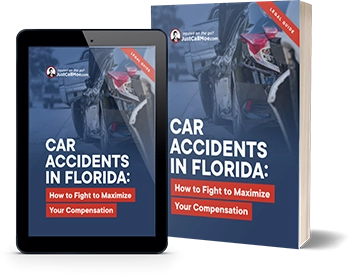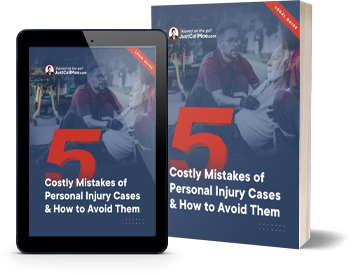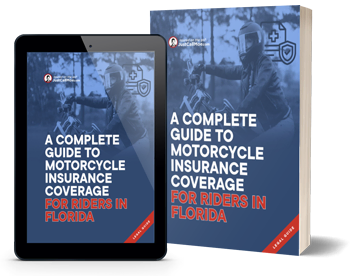The National Institute of Mental Health notes that anyone can develop post-traumatic stress after experiencing or even simply witnessing a serious event like a car accident. You should not feel ashamed or embarrassed if you or a loved one experiences car accident trauma symptoms.
However, you shouldn’t have to deal with these symptoms without support, especially if the crash was due to someone else’s carelessness or wrongful act. Find out common signs of car accident trauma and what our Orlando car accident lawyers at JustCallMoe in Orlando can do to support you.
Why You Should Take Car Accident Trauma Symptoms Seriously
Mental or emotional anguish can sometimes have greater consequences than physical injuries. You can claim compensation for this trauma after a car accident, and you usually have one chance to do so.
Settlements are final, so you won’t be able to seek damages from the liable parties later. Being aware of car accident trauma is the first step in identifying and building a strong case for the payout you deserve.
10 Signs of Trauma After a Car Accident
While this list is not exhaustive, it outlines many car accident trauma symptoms that you or a loved one could experience.
1. Uncontrolled flashbacks and intrusive thoughts
You may be unable to keep from repeatedly replaying the incident in your mind. Such thoughts could become so intrusive that you get distracted during daily living or important events.
Vivid recall of sights, smells, and sounds can be indications of post-traumatic stress disorder (PTSD) as can those certain sights, smells, or sounds triggering memories.
2. Anxiety or depression
If your personality changes from being generally positive to somber and listless, you may be experiencing depression. A sudden tide of negative self-talk and a lack of motivation can be symptoms as well.
On the other hand, you may start dealing with anxiety. This can display as constant feelings of nervousness, worry, agitation, or restlessness.
3. A tendency to self-isolate
You might not have what you think are traditional symptoms of anxiety or depression. You may, however, be managing car accident trauma symptoms by isolating yourself from others.
This is more common when you believe people won’t understand what you’re dealing with. You may also try to spare others the burden of helping you manage your feelings. Therapy and counseling are often a better way to cope with such emotions.
4. Sleep difficulties
A lack of sleep may not be solely because of physical pain after the accident. Nightmares that constantly awaken you could be due to mental and emotional distress. Bad dreams could become so constant that you struggle to fall or stay asleep.
Some who deal with car accident trauma symptoms begin to stay in bed too much. If you fear facing the day, whether consciously or unconsciously, this could be a subtle sign of trauma.
5. Behavioral changes or mood swings
PTSD can trigger a continual state of fight, flight, or freeze. As a result, you might not be constantly in a depressed or anxious mood, but you may jump from elation to irritability or sadness to aggressiveness with the slightest provocation.
A friend or family member may comment that you get upset or offended more easily than before. Instead of brushing off such concerns, realize that you might have car accident trauma that needs treatment.
6. Changes in appetite
Constant stress can interfere with the hormones that regulate your appetite. Grief over your injuries or those of others can cause changes in how you sense hunger. Some people begin “stress-eating” to compensate for negative emotions.
A few days of changes in your appetite might not be cause for concern. However, if your eating habits have drastically changed for an extended time, this could be a sign of car accident trauma.
7. Thoughts of self-harm or violence to others
Any new or increased thoughts of hurting yourself or others are serious and something you should quickly address.
While these are matters you can discuss with a therapist, the onset of such symptoms requires immediate action to protect yourself and others.
Try to talk these feelings out with a close friend or family member. If you have no one to talk to, you can always call the Suicide & Crisis Lifeline by dialing 988. If you struggle to verbalize your feelings, you can use the Crisis Text Line. Contact a counselor by texting HOME or CONNECT to 741741. Both services are free.
8. Constant fatigue
You may be dealing with persistent tiredness, regardless of whether or not you are getting sufficient sleep. This is another sign of car accident trauma.
9. Poor concentration
Watch out if you struggle to focus on one task, especially if you have had no such issue previously. This is a particularly concerning sign if you can’t stay focused while you’re fully awake.
10. Vehophobia (fear of vehicles)
Vehophobia is a real condition that a person can develop after an accident. It involves a fear of driving or riding in a vehicle.
In many cases, you start to avoid certain roads or vehicles. Even if you don’t insist on avoiding these situations, you could experience sweating or a racing heartbeat when encountering them. Any phobia, which is an irrational and persistent fear that develops after an accident, is worth looking into.
How To Prove Car Accident Trauma
After a car accident, the key is to obtain immediate medical treatment to determine the extent of your injuries. That includes a mental or psychological evaluation of any trauma symptoms.
Keep a journal to document your feelings after the accident. Include what others comment about how the incident affected you. These points go a long way in supporting your case.
Contact JustCallMoe if You Have Car Accident Trauma Symptoms
An unfortunate consequence of dealing with car accident trauma symptoms is making the process of filing claims and fighting a legal battle even more challenging. That doesn’t have to be the case with competent and compassionate legal counsel on your side. Contact our team at JustCallMoe in Orlando for a free consultation to see how we can support you.

 (866) 225-5663
(866) 225-5663




 100% Secure and Confidential
100% Secure and Confidential